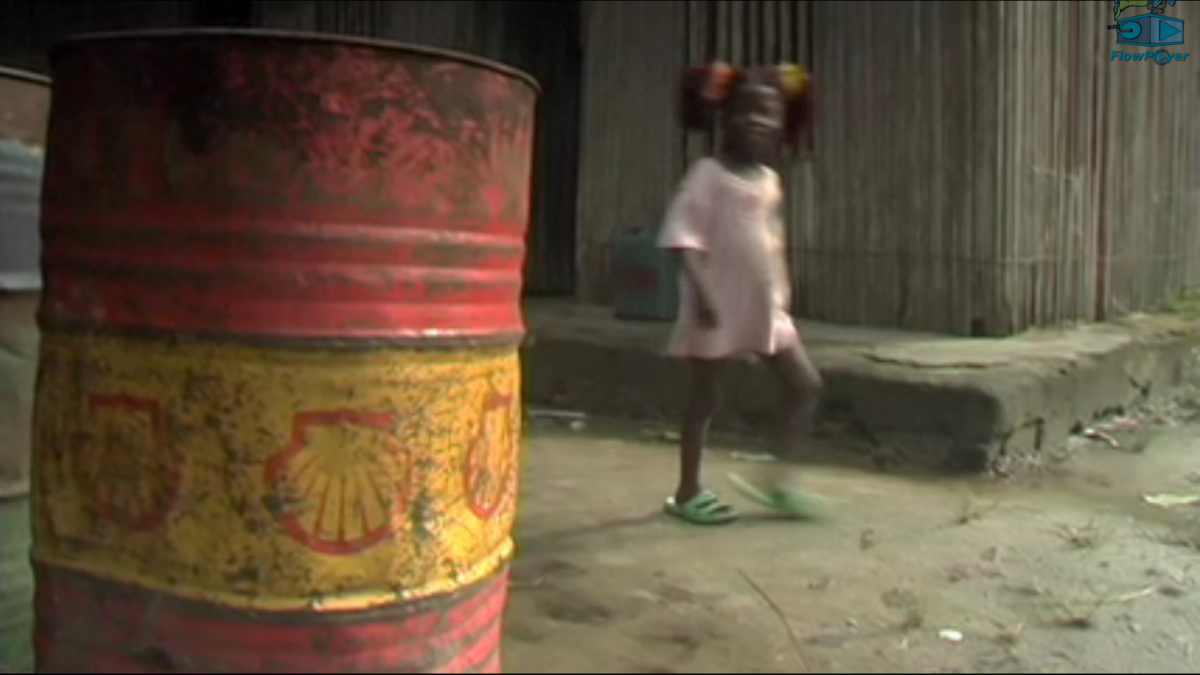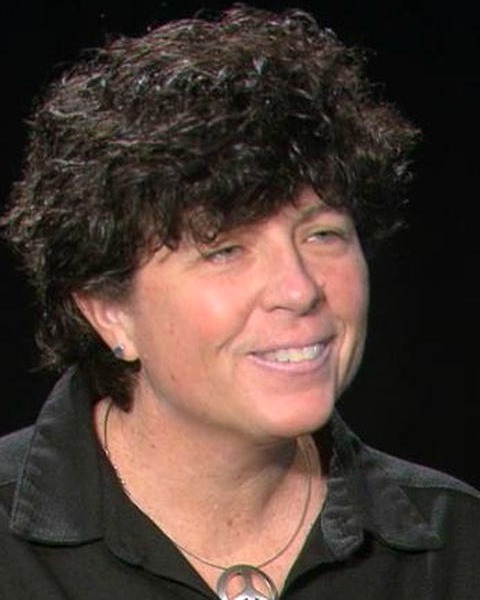 |
‘Governments and Corporations Were Figuring Out a Way to Behave With Impunity When It Comes to Oil’ - CounterSpin interview with Sandy Cioffi on oil in Nigeria
view post on FAIR.org
FAIR’s Steve Rendall interviewed Sandy Cioffi about oil in Nigeria for the June 25, 2010, episode of CounterSpin—an interview that was reaired for the June 14, 2019, show. This is a lightly edited transcript.
MP3 Link
Janine Jackson: A recent report in the Guardian, based on internal documents from the Mobil Foundation—the philanthropic arm of Mobil Oil Company—shows how the foundation named a certain Dr. David Page in its decision to fund a marine research lab at Bowdoin College, writing that it could “assure rapid response to any possible Mobil spill events.”
Five years later, after a Mobil “spill event” in Nigeria, Dr. David Page was being quoted in the New York Times—identified as a professor and “American oil spill expert.” Page offered such pearls as:
Between Mother Nature and Mobil’s highly effective and targeted response, the shoreline was spared what could have been a very serious environmental event.
Foundation documents stress the benefits of such funding, one of which is to create a “counterpoint to the so-called ‘public interest groups.’”
Oil companies in Nigeria are also hoping to “counter” people like filmmaker Sandy Cioffi. Cioffi went to Nigeria to make a documentary about a community library, but came away with Sweet Crude, a hard-hitting look at industry-incurred devastation and violence in the Delta.
Nine years ago this month, CounterSpin‘s Steve Rendall spoke with Sandy Cioffi. He asked first for her reaction to the then-ongoing oil spill in the Gulf of Mexico.

Image from the film Sweet Crude.
Sandy Cioffi: Obviously, my first reaction, like anyone, is emotional. And the emotions run deep for me, because part of my motivation in making the film Sweet Crude was to point out to people that when you see a place like the Niger Delta, it’s not only a current crisis, but it’s also a cautionary tale. I had hoped that my film, along with all the other activism going on around the world, might help to avert a disaster of this kind, not just in the Gulf, but in all of the places around the world. But those disasters are happening and imminent. It’s devastating, is the really simple answer.
There are some similarities. And I think those are important to note, particularly one that doesn’t get all that much ink, which is the use of these chemical dispersants as a way of dealing with oil spills. The testing ground for those chemicals, for all these years, has been the Niger Delta. One of the chief complaints of the women who, somewhat famously, in 2002 and 2003 took over oil platforms in the Niger Delta, one of their chief complaints was the devastating health effects of those chemical dispersants on their children, and demanding that oil companies no longer use those as a way to pretend “cleaning up” an oil spill.
I think people don’t know that when you hear about something like the chemicals dispersants, you somehow think, this is the first time that they’re being tried. And thinking about the Niger Delta as a sort of terrible and demonic testing ground is a better way to put it. That’s one similarity.
Another, of course, is just to see the immediate impact to wildlife. The long-term consequences of those kinds of oil spills aren’t something—you know, I hear biologists being interviewed to say we don’t know those answers—well, we know some of those answers, because they’re sitting right there in Nigeria, unbeknownst to most people.
There are, of course, also corporate lack-of-any-kind-of-preparation similarities, lack-of-any-kind-of-government-regulation similarities. I think the distinction is simply that, if it’s in Africa, you don’t hear about it at all. And it’s been aptly pointed out, at least somewhat in the last few weeks, that the media coverage about the Gulf spill is at least happening, and at least you’re seeing some images of the Niger Delta, and oil spills. And the other devastating environmental impacts just aren’t in your head.
But it’s like being in Mad Max when you’re there. It’s some strange sort of trip into the future when you’re there. And I just would like to say that I get a little concerned about doing too much pitting one place against another, and saying, “Well, they got no coverage, we get coverage.”
That’s part of the story. It’s an important part of the story. But I think if we really go to the next point, it was always a place that governments and corporations together were figuring out a way, under the radar, to behave with impunity when it comes to oil. It’s a terrible continuum all over the world. And there’s far more that the countries who are facing that, including the US, have in common, than they have differences. And I think that the organizations that are finally bringing 40 nations together to look at, whether you live in an oil-run state or state-run oil, you’re facing some of the same kinds of consequences.
Steve Rendall: We think of the US regulatory system as being weak, or even in the tank for the oil companies. Is it fair to say that the Nigeria story shows us what oil companies will do with virtually no restraints when they can pretty much do as they please, with government support?
SC: It’s more than fair, it’s a perfect way to look at it. And that’s what I mean by continuum. I mean, if you look at the most abusive days of the Nigerian situation, you have full-on, flat-out military dictators, both supported by American foreign policy and supported by oil companies. You have Chevron and Shell guilty of actually arming young men against each other in a sort of pit-enemies-against-one-another strategy to keep chaos, and prices of oil fluctuating. You, in fact, had two fairly famous cases, in the last two years, of people actually being able to sue Chevron and Shell in American courts for their participation in what were very violent situations in the Niger Delta. So you can take the Niger Delta as an extreme, and unfortunately classic, situation of a full-on kleptocracy, of an oligarchy that is completely in place as an oil state. And then if you look on another end of the spectrum — some people would say Norway, although that’s not all a bed of roses, either — but if you look at that entire continuum of how to deal with oil, the United States might be somewhere in the middle, but it’s certainly, at this point, an oil-run state.
SR: Among your experiences in Nigeria, you had occasion to see how ABC’s Brian Ross tried to cover the Nigerian opposition movement. Ross wasn’t exactly focused on the predations of big oil, or the environmental and safety threats, or a peaceful resolution to the conflict over these issues. Tell us a little bit about what you think that says about US coverage of Nigeria, and perhaps Africa at large.

Sandy Cioffi: “It’s an actual strategy among oil companies…that if you can fearmonger enough, you can get a public that says, “Fine, even though the safety measures are not in place, we’ll drill 10 miles in the ocean if you don’t go to foreign oil.” (image: PBS)
SC: At its most benign, African coverage is nonexistent. At its most problematic, the coverage is either about a group of people who are victims, huddled by the side of the road waiting for aid, or brutal people who just don’t value life, and are at each other’s throats and brewing terrorism. ABC News’ report chose the latter characterization, of an armed movement that has grown out of decades of unarmed resistance, which met with virtually a silent world paying no attention to them.
And their decision in 2006, to begin to kidnap oil workers, guess what? It yielded media coverage. So they were reinforced in the notion that if they pick up arms, they’re going to see CNN and ABC. Unfortunately, on CNN and ABC, particularly ABC, what they saw was classic, sensationalist, just incendiary reports of young men with guns. And they used as their sources an unnamed email address, rather than an unmasked interview that I delivered for them, while working as a freelance person for them; they left it on the cutting room floor.
It’s probably true that there could be an explanation about the ways in which they have not enough time and not enough research associates, but there’s something more important at play. The idea that you fearmonger as a way to get viewers, and you speak about the “new African terror threat.” And you imply a relationship to Al Qaeda, which a pesky detail of fact is that the young men of the Niger Delta would never be in association with Al Qaeda, because they’re deeply Christian and quite anti-Muslim, which is, in and of itself, a concern for people in Nigeria. But aside from that fact, there’s plenty of evidence and sources to prove that they have nothing to do with Al Qaeda. But he went to air with a story that implied there might be an association of coordinated attacks.
And to my mind, the connection of that, and what happened in the Gulf, is that part of that fearmongering has led to deeper and deeper ocean exploration for oil. It’s an actual strategy among oil companies, and all of the geopolitical considerations, that if you can fearmonger enough, you can get a public that says, “Fine, even though the safety measures are not in place, we’ll drill 10 miles in the ocean if you don’t go to foreign oil,” because we keep saying “foreign oil,” “foreign oil” in this way, that’s all about a level of racism and fearmongering, rather than looking at the question of our relationship with oil in general.
Janine Jackson: That was filmmaker Sandy Cioffi speaking with CounterSpin in June of 2010 . You can learn more about the film Sweet Crude at her website, SandyCioffi.com.
|
|
Comments
Post a Comment